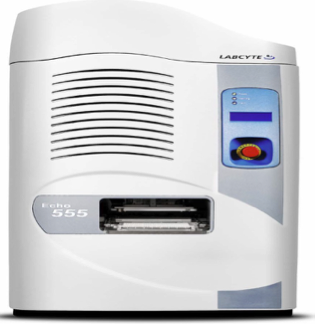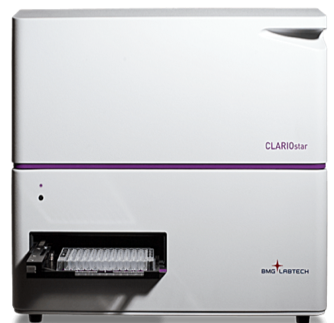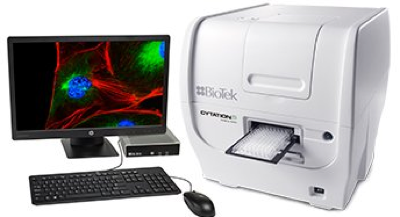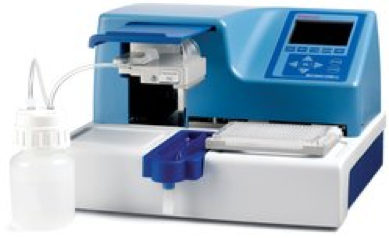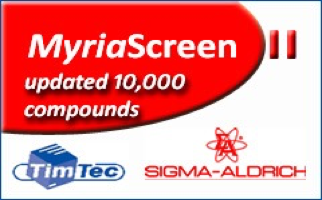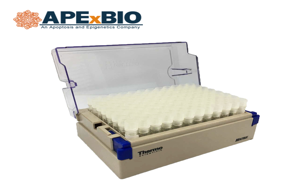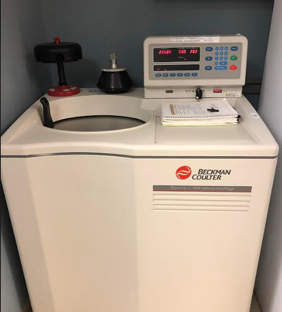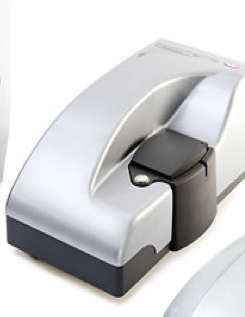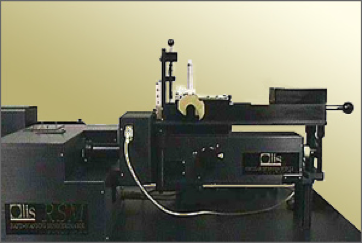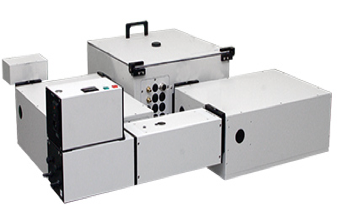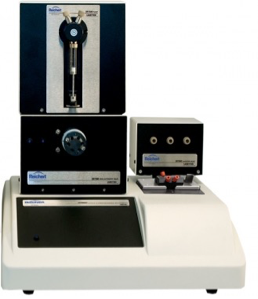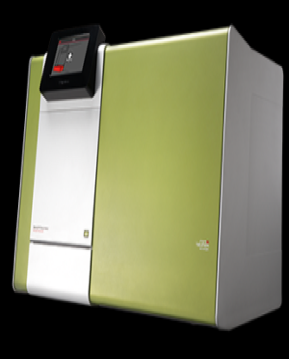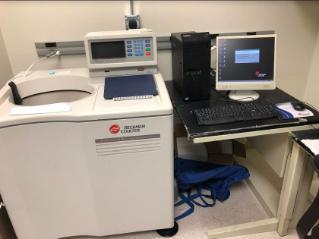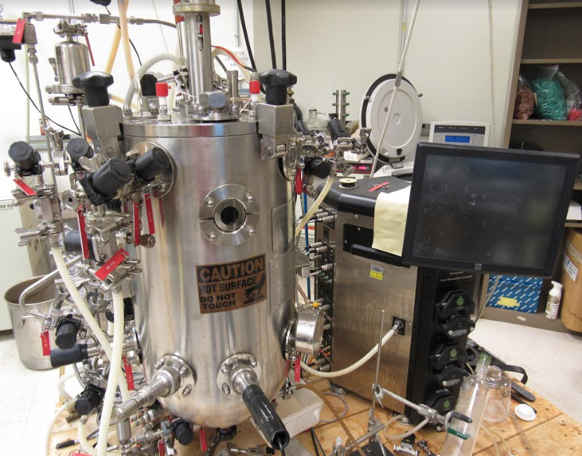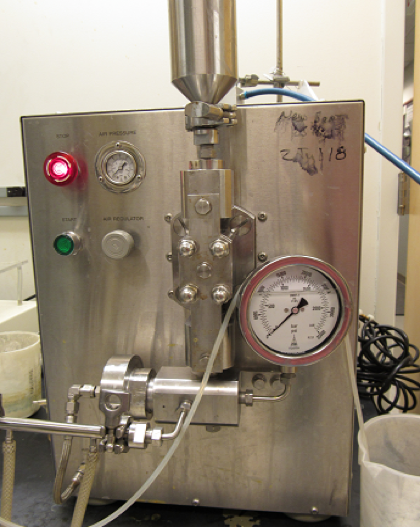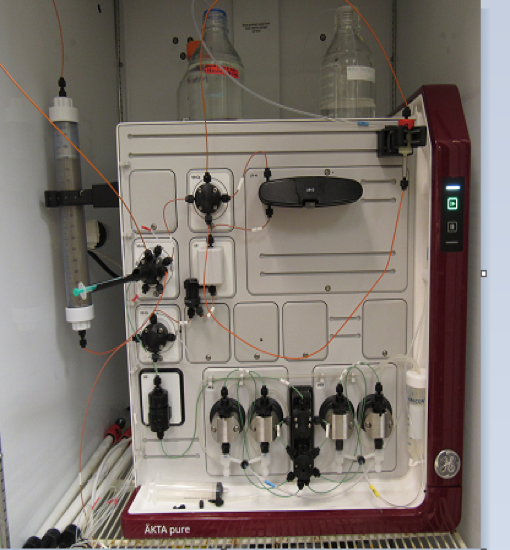Core Facilities
Lead: Dr. Yana Cen
Members of the core: Yana Cen, Aaron May, Dana Selley, Xuewei Wang, Shijun Zhang
The center has developed a biological screening facility that is now open to researchers from within and outside VCU. Instrumentation that is currently available includes a BMG Labtech Clariostar microplate reader; BioTek MultiFlo FX plate washer and liquid dispenser; Combidrop nL liquid dispenser; and Labcyte Echo 550 acoustic liquid handler (96-wells → 1534-wells).
The center hosts several libraries of chemical compounds with diverse structures including ApexBio* (FDA approved molecules; 2,000 compounds), Myria ScreenII** Diversity compound library from Sigma Aldrich (10,000 compounds, mol. wt. 120-500 Da). These 12,000 chemical compounds are available for HTS and biophysical analysis.
Dr. Dana Selley’s lab in the Department of Pharmacology and Toxicology, School of Medicine has the capabilities to conduct Radioligand binding assays, G-protein activation: [35S]GTPγS binding, immunoblotting, second messenger assays (e.g. cAMP). The major equipment includes harvesters (for binding assays), liquid scintillation counters, scintillation/luminescence plate reader, robotic pipettor, centrifuge, UV/Visual, spectrophotometer, and cell culture facilities.
Lead: Dr. Umesh Desai
The biophysical facility at the Center consists of multiple instruments that support fundamental and applied research on mechanism of action, structure/activity relationships, and drug discovery and development. These instruments include a PTI spectrofluorometer, NanoTemper Microscale Thermophoresis, Reichert Surface Plasmon Resonance, Waters UPLC coupled to TQD-ESI-MS, Beckman Ultracentrifuge, Olis Circular Dichroism with stopped flow assembly, and dynamic light scattering.
Lead: Dr. Shijun Zhang
Members of the core: Shijun Zhang, Yana Cen, Yan Zhang, Malgosia Dukat, Umesh Desai, Matt Hartman, Ashton Cropp, Josh Sieber
The Chemical Synthesis Core at the Center for Drug Discovery is well equipped with expertise (Cen, Desai, Dukat, Ellis, Hartman, Cropp, Sieber, S. Zhang, and Y. Zhang), facilities and instruments that are essential for small molecule and peptide design, synthesis and characterization. The major instruments that are routinely applied for organic synthesis, separation and structural characterization include multiple BUCHI rotavaps, vacuum drying pumps, peptide synthesizers, Biotage CombiFlashes, IR (Thermal Scientific), HPLC (Waters and Agilent), Bruker Ultrashield 400 plus NMR, Mass spectrometer (Perkin Elmer), Avion TLC-MS, etc.
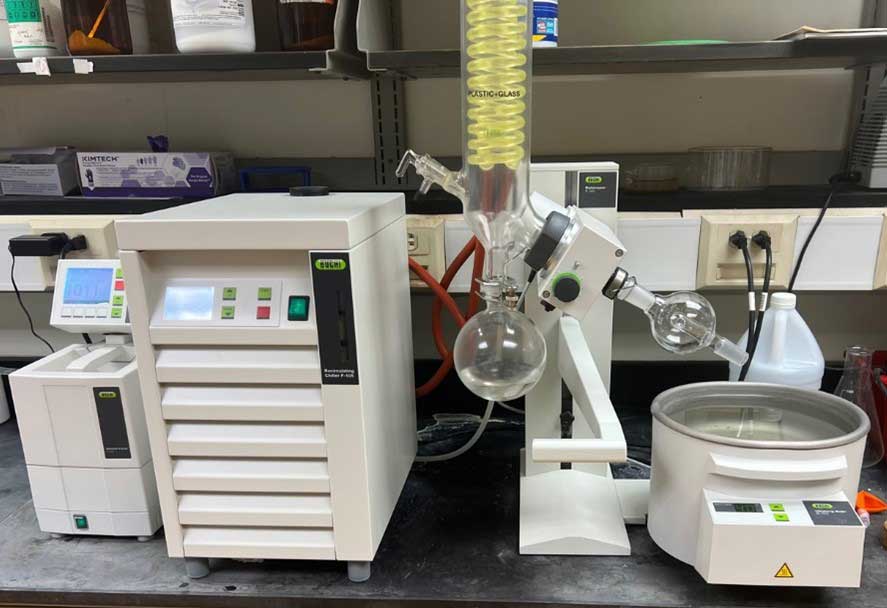 Buchi Rotvap
Buchi Rotvap
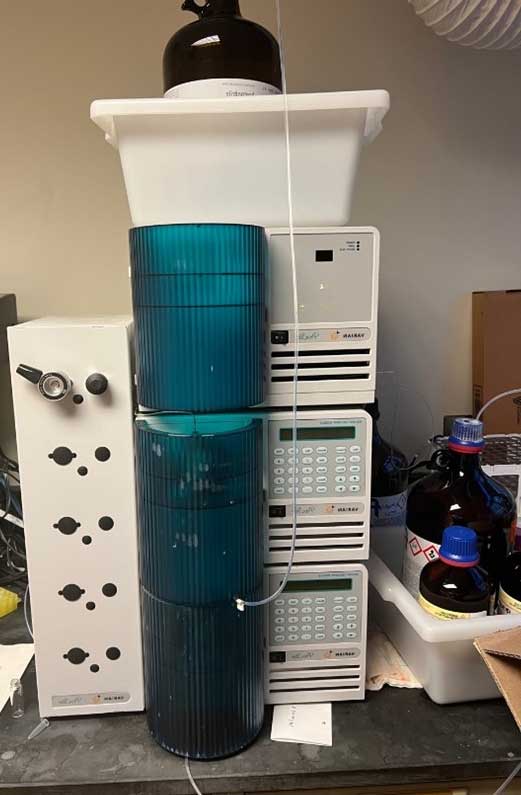 HPLC: Varian Prostar
HPLC: Varian Prostar
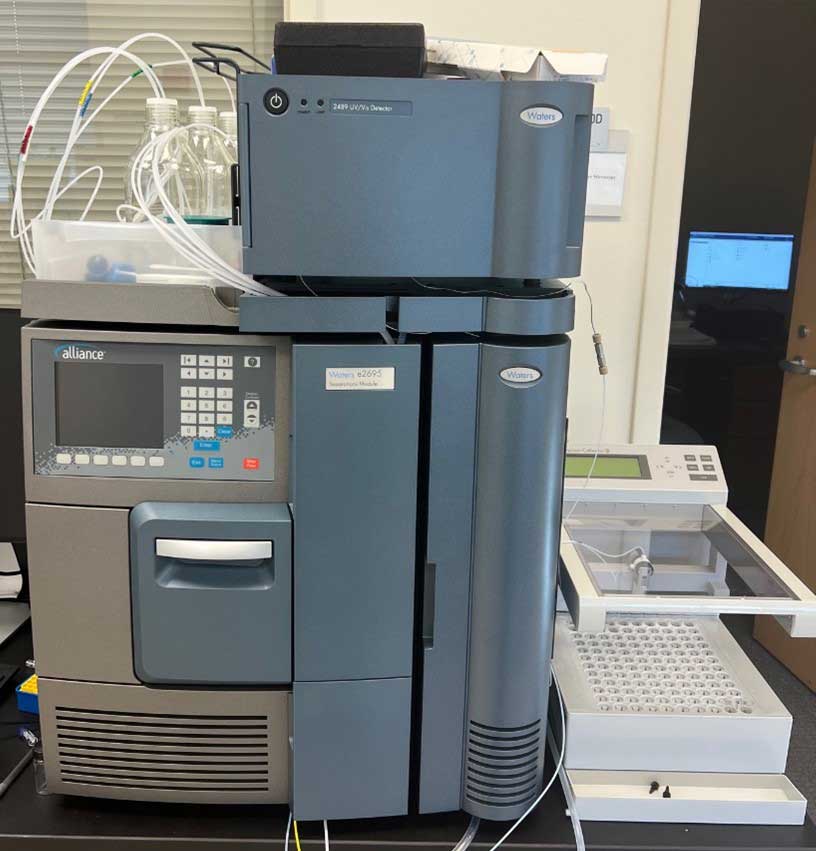 Waters Alliance
Waters Alliance
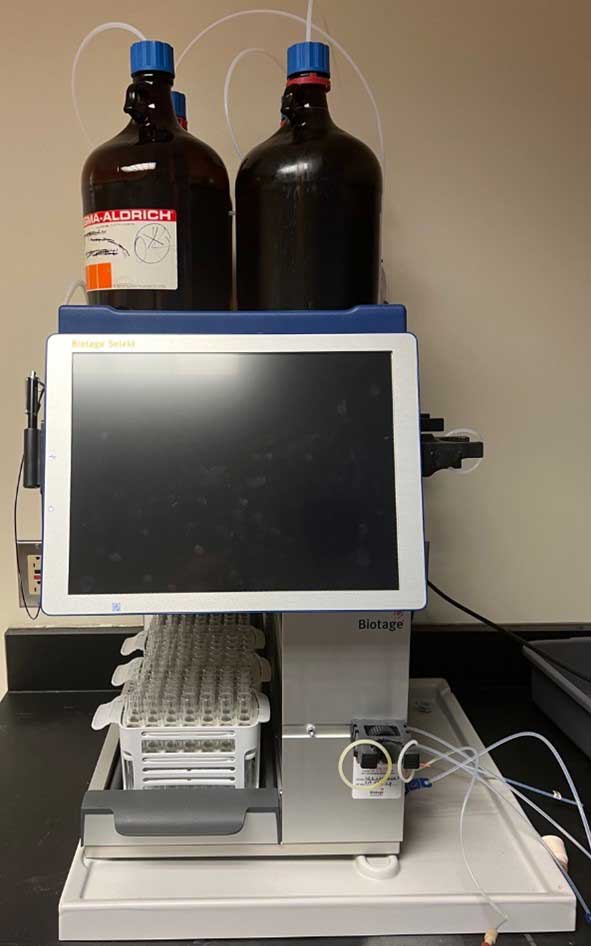 Combiflash: Biotage Selekt
Combiflash: Biotage Selekt
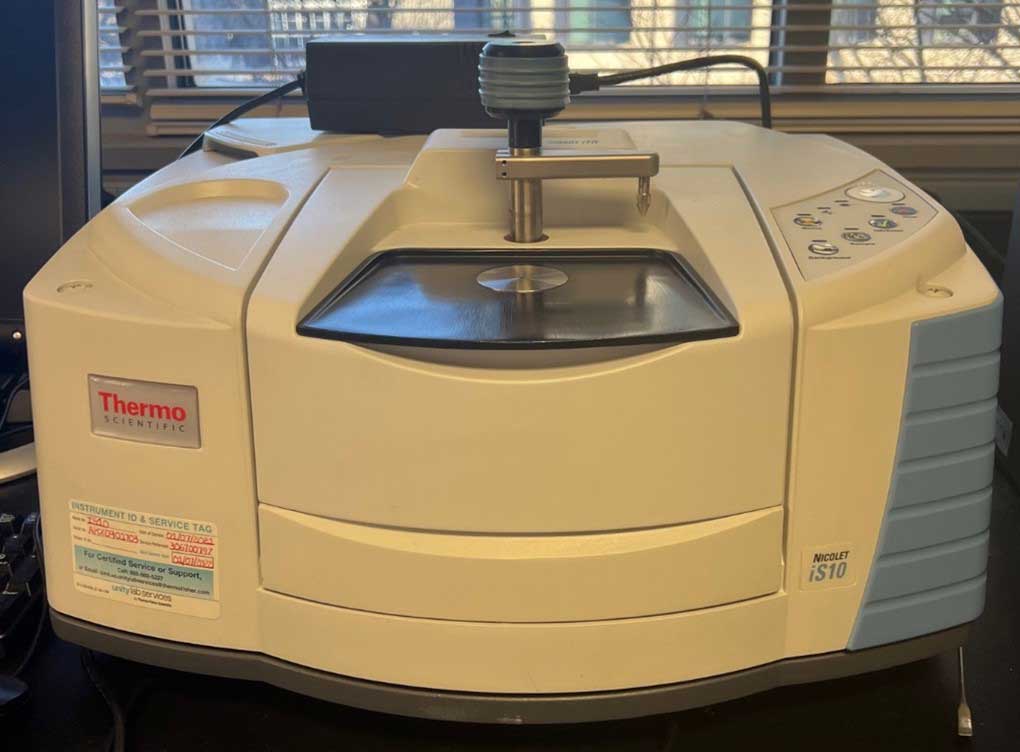 IR: Thermo Scientific Nicolet iS10
IR: Thermo Scientific Nicolet iS10
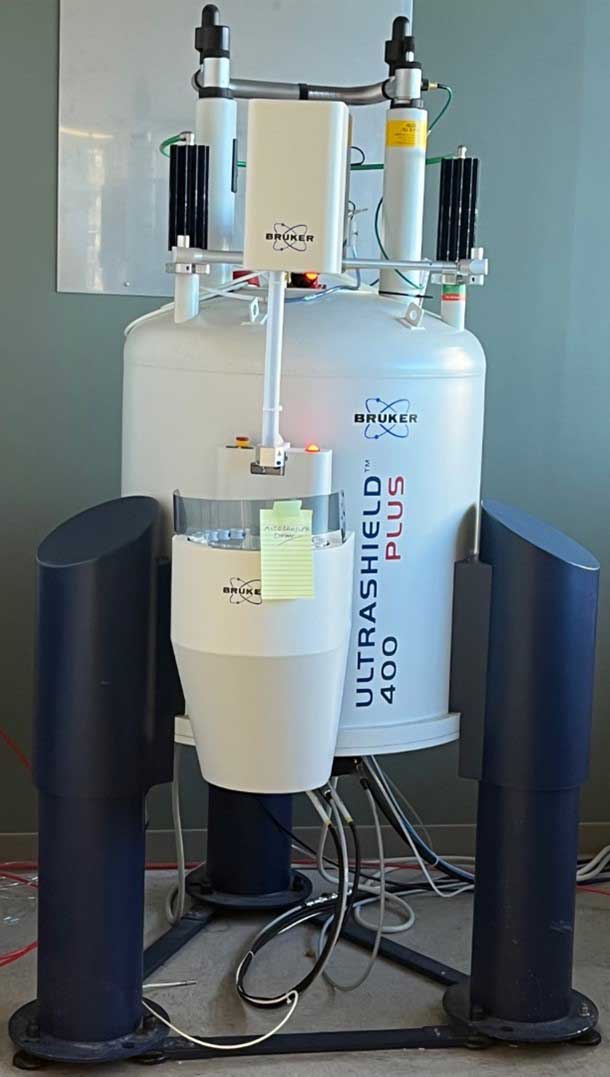 NMR: Bruker Ultrashield 400 Plus
NMR: Bruker Ultrashield 400 Plus
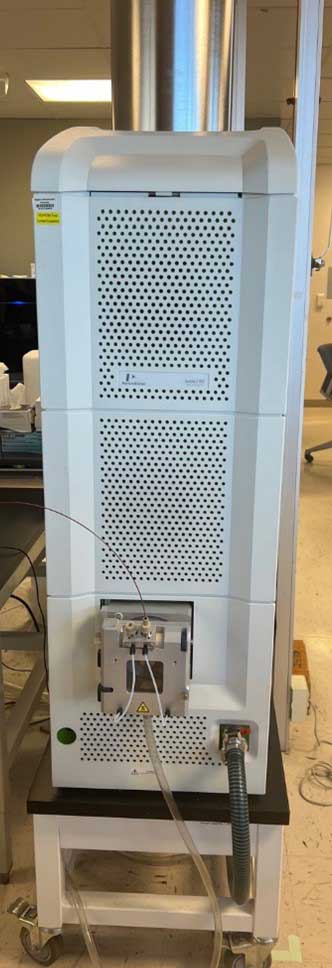 MS: Perkin Elmer AxION TOF Mass Spectrophotometer
MS: Perkin Elmer AxION TOF Mass Spectrophotometer
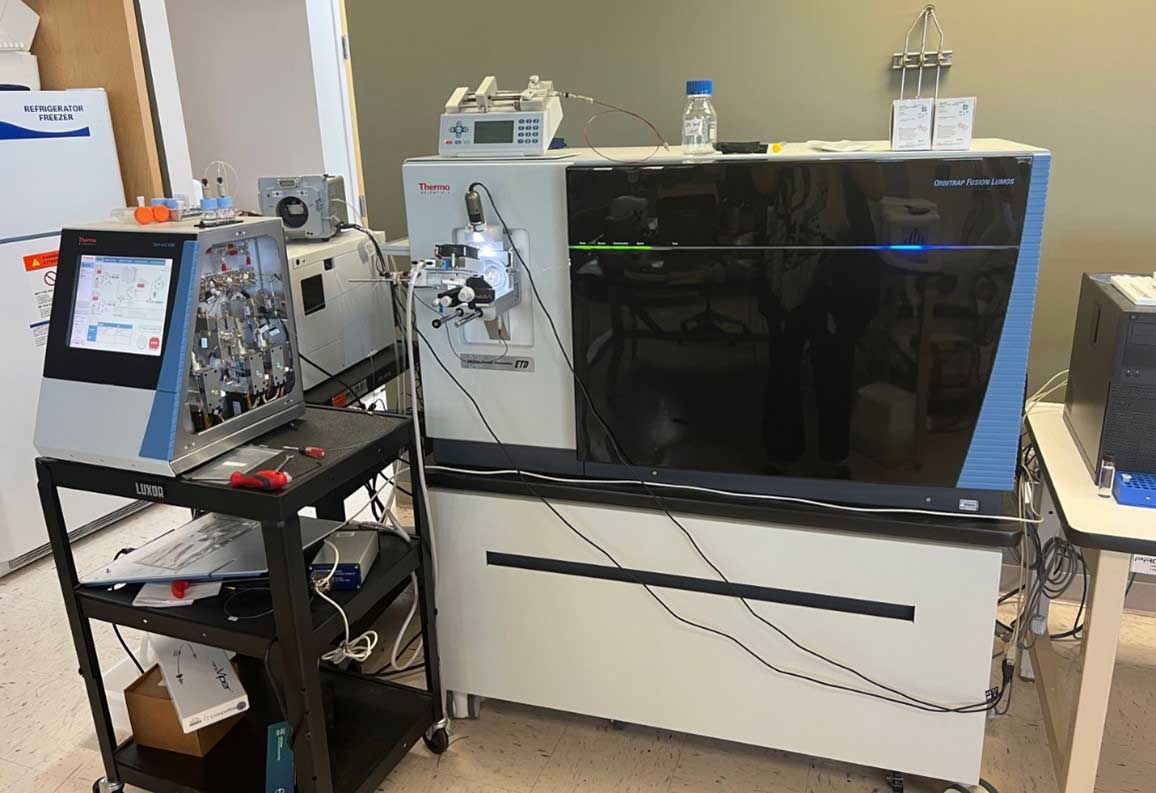 Thermo Scientific Orbitrap Fusion Lumos
Thermo Scientific Orbitrap Fusion Lumos
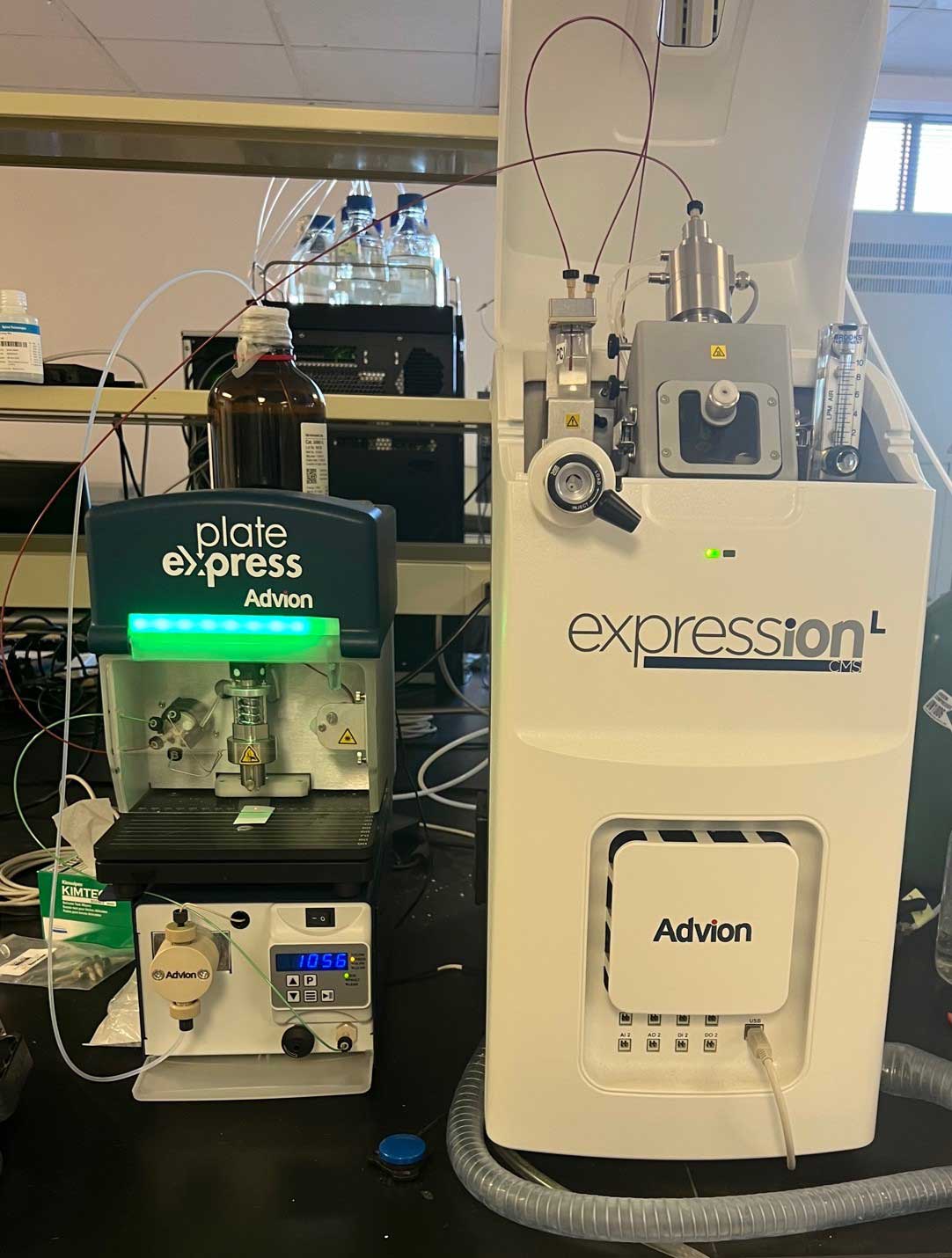 TLC-MS: Advion Plate Express
TLC-MS: Advion Plate Express
Lead: Dr. Glen Kellogg
Members of the core: Glen Kellogg, Piyusha Pagare, Balaji Nagarajan, Ka Un Lao
The Center contains a University Core Facility in computational chemistry and molecular design led by Dr. Kellogg, assisted by Drs. J. Neel Scarsdale and Philip Mosier. It is part of VCU's Structural Biology Core. The Computational Chemistry and Molecular Design Core Facility offers modeling software and hardware resources to VCU researchers. The facility maintains an extensive library of commercial and academic modeling software with multi-user licenses for a number of key programs such as the Tripos suite (Sybyl, Unity, Surflex Dock, etc.). Other NMR, crystallography, and modeling software, e.g., CCP4, DOCK, HINT, Molconn-Z, ZAP, SCWRL, GRID, AutoDock, etc., are available on the Center servers. At present, the modeling facility has 18 workstations (Apple MacPro and Linux), a local GPU cluster, and over 30 TB of disk storage controlled by a Linux server with a tape robot backup system. Many of the workstations are networked through gigabit ethernet to facilitate internal data transfers. The modeling facility offers two academic courses as a part of the Department of Medicinal Chemistry (MEDC 541 and MEDC 670) graduate program. A large number of VCU graduate students have received training in molecular modeling through this offering. Students enrolling in these courses come from over a dozen VCU departments on both the Monroe Park and Medical Center campuses.
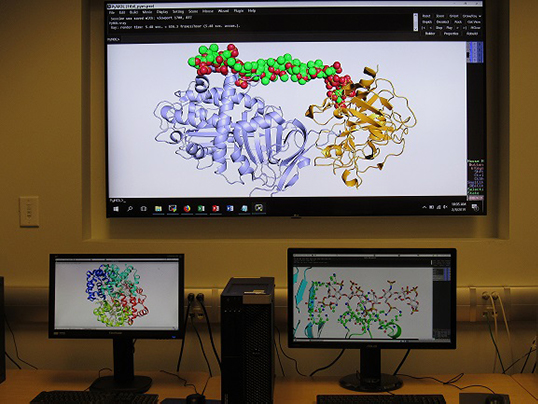
Lead: Dr. Qingguo Xu
Members of the core: Qingguo Xu, Mike Hindle, Masahiro Sakagami
Our state-of-the-art core facility specializes in preclinical drug formulation development, from innovative process for drug formulation design to drug product characterization. We have experience in a range of formulation options, including nanoparticles, microparticles, microemulsions, liposomes, nanofibers, together with traditional dosage forms such as long-acting injectables inhalation products and tablets. Our expertise covers lab-scale formulation, in vitro physicochemical characterization, stability testing, permeability studies and preclinical efficacy evaluations in animal models.
The facility is equipped with cutting-edge instruments, including HPLC, LC/MS, Malvern Zetasizer, Malvern Mastersizer, Rheometer, DSC, TGA, powder XRD, laser diffraction particle sizing (Spraytec and Sympatec), moisture sorption, electrospinning systems, rheometers, and USP dissolution apparatus (I, II, IV). A lab scale spray drying capability is available. We also focus on developing disease-specific animal models, particularly for ocular disorders, opioid use disorder, lung infection, and cancer/angiogenesis research. Our capabilities extend to assessing optimal drug concentrations, evaluating toxicity and efficacy, and conducting tissue analyses to study drug accumulation, metabolism, and elimination. Pharmaceutical packaging can be performed using a small scale blister packing apparatus to enable room temperature and accelerated stability studies in environmental chambers.
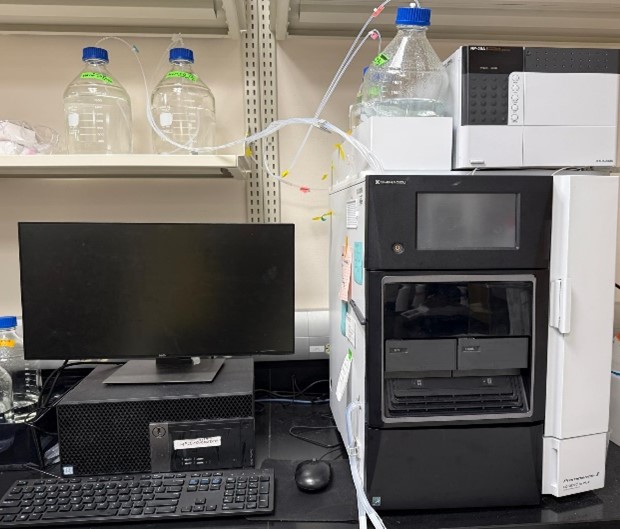 Shimadzu LC - 2030C (PDA and RF-20A)
Shimadzu LC - 2030C (PDA and RF-20A)
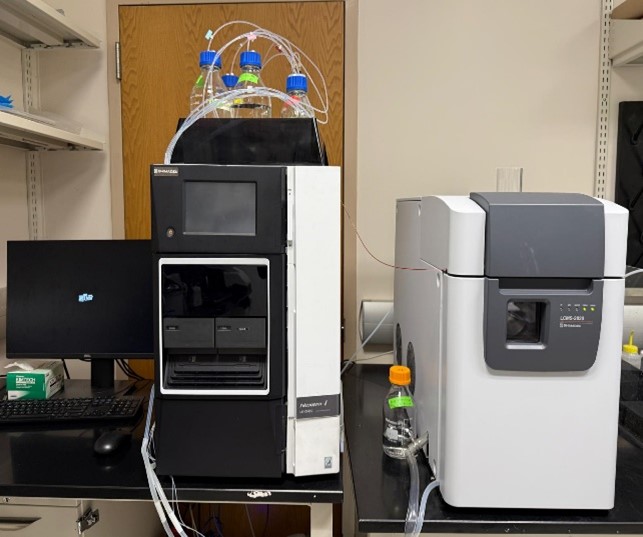 Shimadzu LCMS-2020
Shimadzu LCMS-2020
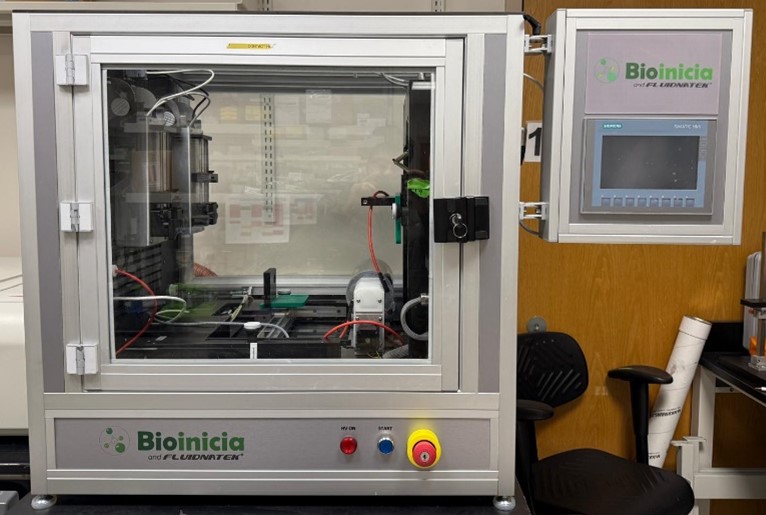 Fluidnatek LE-50 Nanofiber Electrospinning
Fluidnatek LE-50 Nanofiber Electrospinning
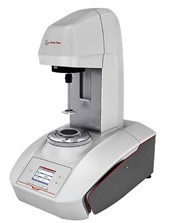 AntonPaar MCR 702e Rheometer/DMA
AntonPaar MCR 702e Rheometer/DMA
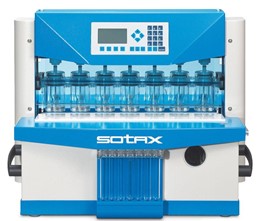 Sotax USP IV apparatus
Sotax USP IV apparatus
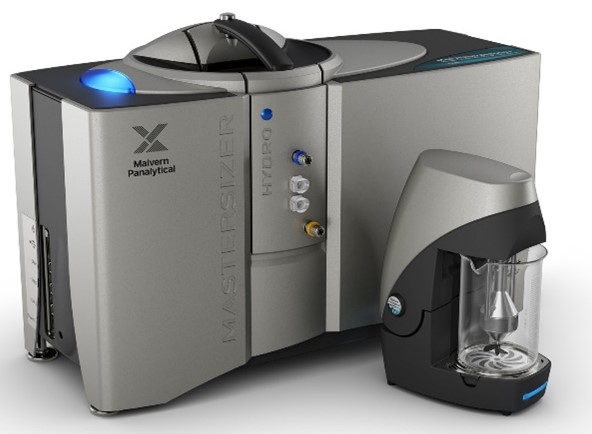 Malvern Mastersizer 3000
Malvern Mastersizer 3000
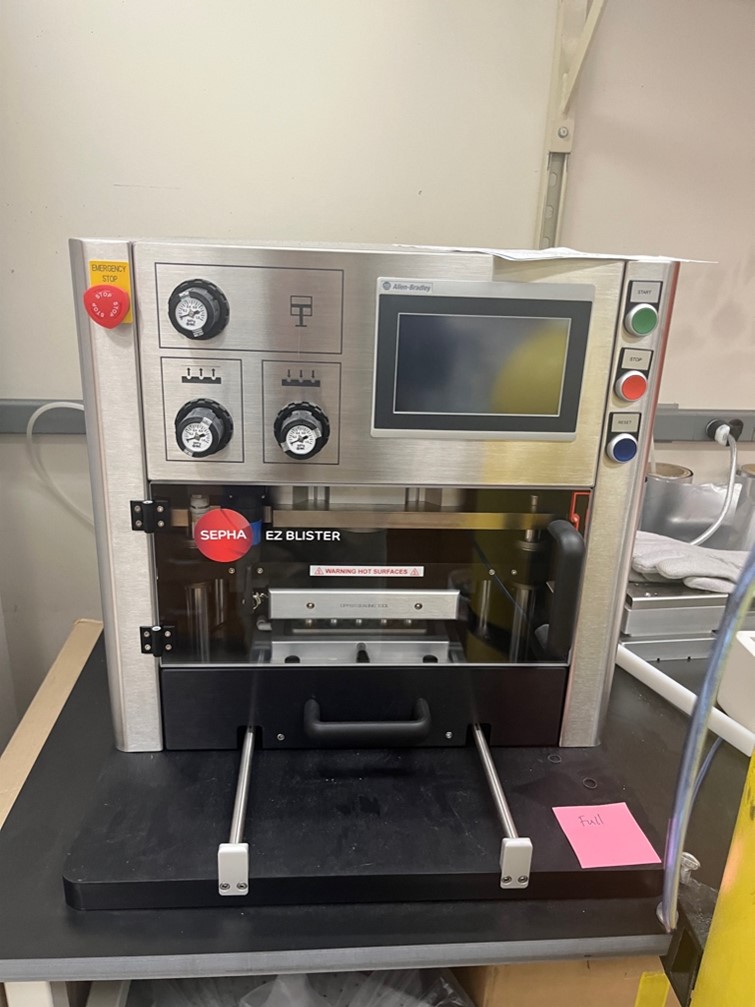 Blister Packing Apparatus
Blister Packing Apparatus
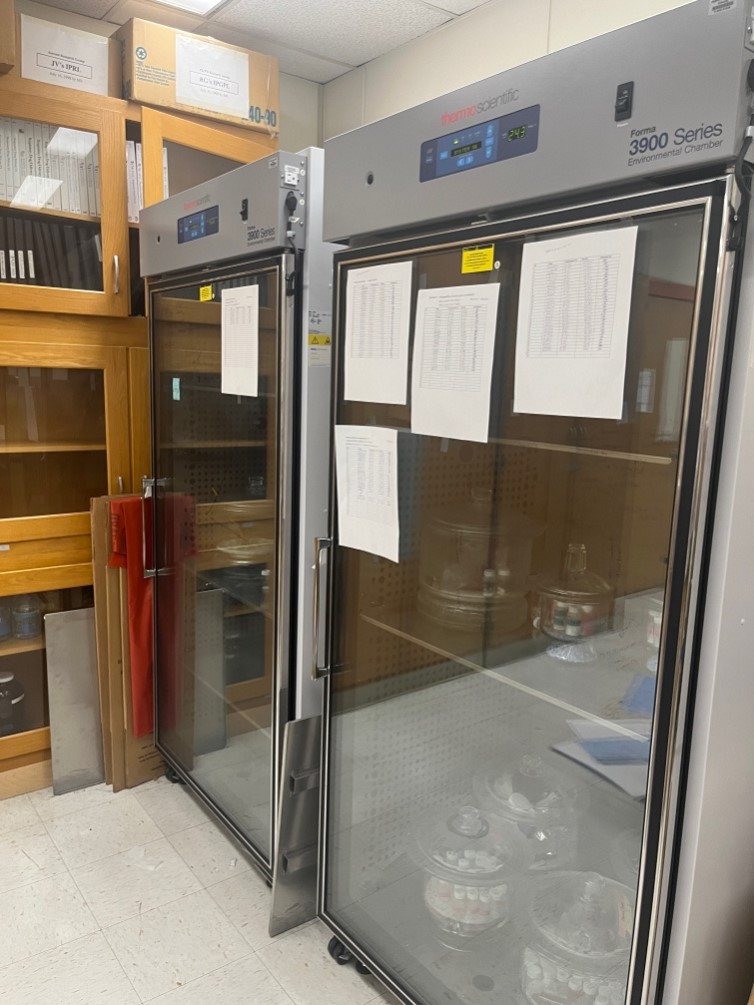 Environmental Stability Chamber
Environmental Stability Chamber
Lead: Dr. Matthew Halquist
Members of the core: Matthew Halquist, Phil Gerk
Our Bioanalytical Laboratories offers highly sensitive analysis of drugs and metabolites in biological fluids and in vitro dissolution testing. Our HPLC and LC-MS/MS development experience spans the range of available technology. Methods have been developed for drugs and endogenous compounds in biological, environmental and pharmaceutical sample matrices. Ultimately, we perform pharmacokinetic (clinical and non-clinical), toxicokinetic, product, and biomarkers of exposure measurements for small and large molecules.
Leads: Dr. Darrell Peterson, Dr. Chunhao Li
Members of the core: Chunhao Li, Darrell Peterson, Jiong Li
The Center has incubator shakers for growing bacteria or yeast in up to 12 l scale at any temperature from 4 C-37 C or above. In addition the Center houses a 35 l sterilizable in place New Brunswick 510 capable of growing bacteria or yeast under conditions of controlled temperature, pH, dissolved oxygen and volume, and the ability to collect the culture through a Beckman flow centrifuge in less than 2 hours.
Lead: Dr. Adam Hawkridge
Members of the core: Adam Hawkridge, Karolina Aberg, Edwin van den Oord
Proteomics plays a critical role in the drug discovery and development process by identifying drug targets (e.g. chemoproteomics), characterizing drug-protein interactions (e.g., structural proteomics), and mapping relevant signaling pathways (e.g., dose/time-response proteome profiling). Each of these areas requires careful experimental design, method development, advanced instrumentation, and extensive data analysis.
- As a member of the Center for Drug Discovery (C2D) and the Director of the Massey Comprehensive Cancer Center Proteomics Shared Resource (PSR), Dr. Hawkridge advises and, in some cases, collaborate with VCU investigators interested in applying proteomics to their drug development research. We are fortunate at VCU to have an experienced team and advanced instrumentation within the PSR to facilitate proteomics measurements in support of drug discovery efforts. In addition to these resources he teaches a 3-credit course in proteomics (PCEU 675) which includes a strong emphasis on mass spectrometry-based proteomics data analysis. The overarching goal of the C2D, PSR, and myself is to provide a technology and educational platform for faculty, staff, and students to advance drug discovery efforts at VCU.
- The research program of Drs. Aberg and Van den Oord aims to alleviate the tremendous personal, familial and societal burden of mental illness and substance use disorders by using state-of-the-art technologies to identify molecular markers that can be used to develop new medications and tailor treatment to individual patients. Specific areas of focus:
- Autism spectrum disorder, major depressive disorder, bipolar disorder, schizophrenia, alcohol use disorder, suicidal behaviors and childhood trauma
- Methylomic, transcriptomic, single-nucleus RNA sequencing, and methylation sequencing studies
- Brain derived extracellular vesicles
- Laboratory protocol development and high performance computing
Lead: Dr. Martin Safo
Members of the core: Martin Safo, Youzhong Guo, Tonie Wright, Carlos Escalante, Brian Fuglestad, Qinglian Liu, Faik Musayev
The facility consists of Rigaku MicroMax-007HF X-ray Generator with VariMax-HF Arc Optics/Hybrid Photon Counter, Eiger R 4M Detector and AFC11 Goniometer, a desktop computer, a Haskris water chiller and a large collection of crystallographic software programs. The facility is used to collect X-ray diffraction data from small or macromolecule crystals and the data is subsequently used for structure elucidation. This instrument has been used by investigators from the Departments of Chemistry, Biochemistry, Physiology and Biophysics, Medicinal Chemistry and other units to deduce the structure of proteins and their complexes with drug like molecules. See the Facility Description for more.
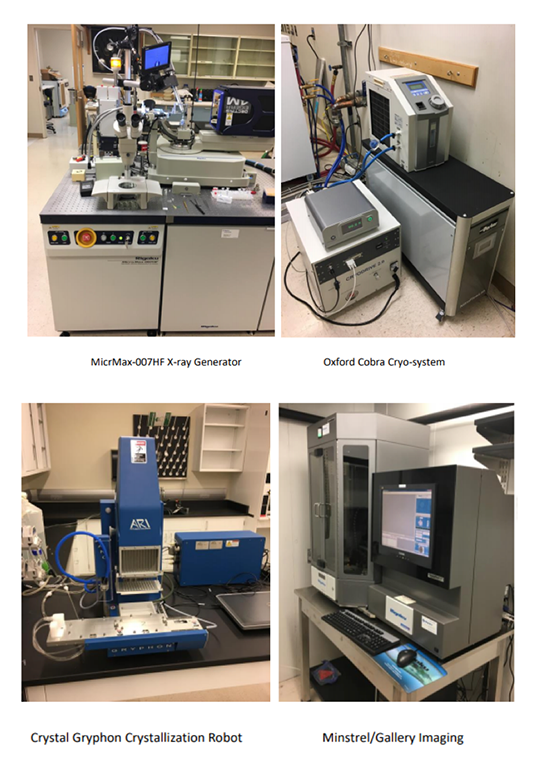
The Center offers the following instruments to the VCU research community by reservation only:
- Clariostar Multimode Plate Reader
- Echo 550 Acoustic Liquid Handler
- X-Ray Diffractometer
Reservations are made thru the university's RAMS FORCE. Select the small reservations tab on the left side of page.
You are expected to be knowledgeable and trained in the use of the instruments.
First-time users of the X-Ray Diffractometer require completion of the "Radiation Safety Training For Research Employees" that can be found on Blackboard.
For access to the facility contact the appropriate faculty member.
Clariostar or Echo 550 contact Dr. Aaron May, aemay@vcu.edu
X-Ray Diffractometer contact Dr. Faik Musayev, fmoussae@vcu.edu
